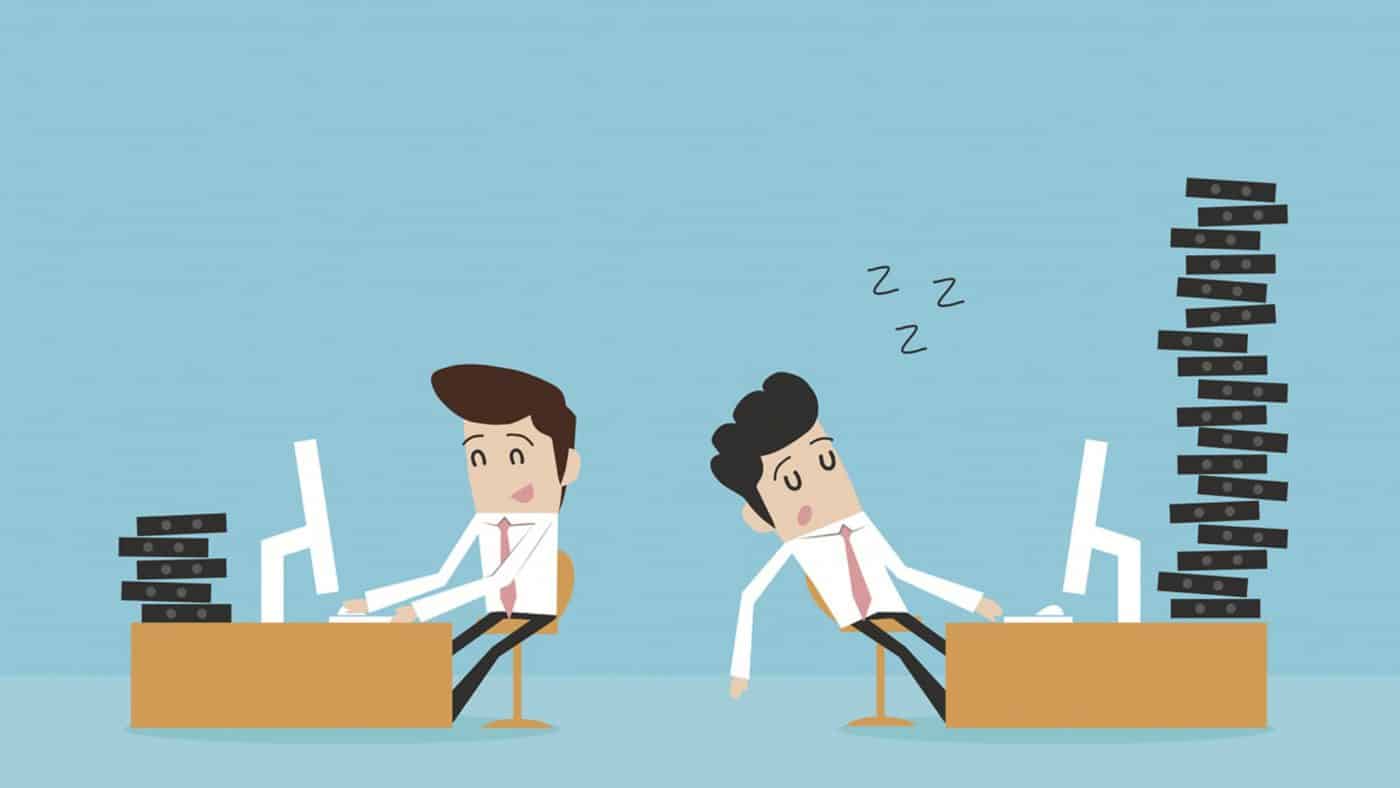
Feb 5, 2016
If you are reading this blog, you probably spend endless hours in the office without achieving much, or perhaps you are just waiting to escape from your desk. Maybe you are a sceptic workaholic who laughs at all of those who drop their pen at 5.30, or maybe you are a manager who wants to scream every time someone leaves the office before the time you think they should go.
I’ve worked crazy hours in most of my jobs. I was contracting and realised I had to take around two months off in between jobs to recover from my burnout. So I decided to change my way of working, and here are my tips for a more sustainable (and productive) work life.
1 – Pick a time of the day to focus on more challenging tasks
I am not a morning person, but for some reason, I am extremely productive from 8 to 12. I tend to work like a maniac in the morning. I am focused, know exactly what I have to do and manage to finish my main daily tasks before lunchtime. At least the important ones.
You know when you perform better, we all do. Move the necessary actions in the morning or afternoon depending on your needs. Of course, you’ll have days packed with work when you don’t even know what time it is, that’s normal, it happens to everybody. But you’ll be able to work at your best at a particular time of the day, so move your calendar around and use your productivity at its best.
2 – Prioritise
Following the point above, you’ll never be able to achieve your targets if you don’t prioritise your work. Most of us work in an environment where ‘everything is a priority’, but that’s not true. Talk with your manager, look at your KPIs, look at your job description and start from there. Most of all, ask! Something I try to do every time I am assigned a task that I am not familiar with, I just ask when they would want to have it done. And if they answer something like “as soon as possible” just request a date/time. You need deadlines to know when to start and finish your work.
3 – Don’t drink coffee until after breakfast.
Caffeine needs proteins to work at its best, wait until some minutes after breakfast to drink your daily coffee, you’ll have great benefits from it! You don’t need to be caffeinated on the train/bus to work, nobody does. Have a nap instead, and have your tea or coffee after breakfast or later in the morning. You’ll have a higher caffeine intake in your bloodstream, and you’ll be awake and alert for longer.
4 – Build a timeline for EVERYTHING
If you arrived at this stage, you might think your work is harder than mine, or you have a higher volume of work during the day. Probably not, unless you are in the wrong job for yourself, then you should change.
I have Excel calendars and timetables for nearly everything I do; I know exactly when I need to do what, and that’s my starting point. It’s called being organised, and you can do it too, it will be of great help. Do I still forget about any tasks during my day? Of course, I do, I am human like everybody else, but mainly I do a good job in remembering why I am here and what do I need to do.
5- Learn to say ‘No’ (for the right reasons)
My manager laughs every single time I say it, because well… it happens on a daily basis. But at the end, I just postpone some activities instead of refusing them. I work in a company where marketing is a novelty. Everybody, me included, is very excited because of the possibilities that Digital Marketing will bring to the table. I am of course jubilant about this, but on the other hand, it means everybody suddenly wants to do everything marketing, and I mean EVERYTHING. It’s my job saying if and when we can do it, many times I’ll just receive an idea and write it down knowing it will happen shortly. Not everything needs to happen immediately; this is another level of prioritisation, you need it to do a good job. Build a monthly plan; you need to manage the people around you as much as they need to manage you. I say ‘No’ many times, but in the end, I always end up adding that particular activity in my calendar, because most of the times I realise I have the capacity to work on that. But be aware that if you are over capacity, you have all the right to pass it on another colleague or refuse until you are not as busy.
6 – Find time for your wellbeing.
I once had a fantastic manager who kicked me out of the office every single day at 5.15 saying “you need to go to yoga, you are going to be late’. I eventually realised she kept track of my productivity, and that tended to drop whenever I stayed late for extended periods of time and didn’t find a slot in my day to take care of myself. That job was the one that taught me how to prioritise, schedule and execute my daily tasks at my best. If you struggle with this, it might be helpful to schedule one or two days during the working week for your exercise/hobby. The rest of it happens during the weekend, but I know that every Monday and Wednesday I have to be on my mat at 6, and that helps with the rest of the week. What if I don’t do that? My stress will eventually take over me, and I won’t be as productive.
We all have different needs, but exercise and time off are important for all of us, and the weekend is just not enough to recharge. Choose two days per week when you are going to do what you need in order to feel healthier (drinks are not included in this category, sorry).
Diet plays an important part in your work-life balance as well, it’s critical to feel energised and have the right vitamin intake every day. A plant-based diet will help in having the energy to face your day.
7 – Don’t be lazy and do your job well
If you want to leave the office at the time stated on your contract, then you’ll have to show your manager, or your employees, that you can manage it. We live in a society that requires more and more work, we are squeezed until the last drop of energy is out and this is entirely unsustainable. You will have to work late some days, for myself that could be when I am close to a company event, to others, when they are closing a deal, but you can manage as long as you are focused during your day. I could chat more with my colleagues and spend more time on Facebook, but I naturally just keep my head down and work hard when I am supposed to do it, rather than when I am out of office. I’m just saying to do your job well, is not that hard right?
I still keep an eye on my emails after work, I know nothing is going to happen in there, but I do, and if something needs to be actioned, I am happy to do it. That rarely happens because… all of the above.
Conclusion:
You add value to a company, and you should treat yourself as such. You could always do more if you stayed a couple of hours later, of course, there’s always more to do. But eventually you’ll get tired, you’ll burn out and your productivity will be gone. Learn to dose your energy in a sustainable manner and choose a job you like. Working for the right people makes a difference, it will allow you to find the right balance, at the end of the day it doesn’t matter how long does it take you to do a job, as long as you do it well.
Note: An interesting read on the topic is The 4-hour working week by Tim Ferriss



